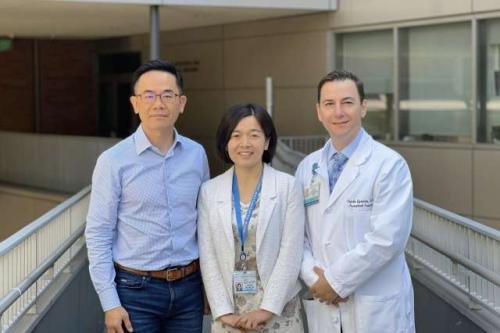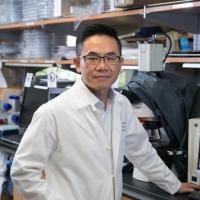
UCLA researchers receive grant from National Institutes of Health
Researchers from the UCLA Jonsson Comprehensive Cancer Center — including Dr. Yazhen Zhu, assistant professor of pathology and laboratory medicine, Hsian-Rong Tseng, professor of molecular and medical pharmacology, and Dr. Vatche Agopian, director of the Dumont-UCLA Liver Cancer Center — received a $3.3 million grant from the National Institutes of Health to find a more effective way to detect hepatocellular carcinoma, the most common type of liver cancer, which often has a poor prognosis.
Current guidelines for those at risk recommend regular ultrasound scans and blood tests for alpha-fetaprotein. However, since these methods aren’t very accurate, a majority of people are diagnosed at an advanced stage where the tumor has spread to other parts of the body, making it difficult to treat.
The research team proposes a new approach using small particles called extracellular vesicles, which are released by cells. Tumor-associated extracellular vesicles are present in the blood at early stages of the disease and can be easily accessed at all stages. The surface proteins of these extracellular vesicles are similar to those of tumor cells, making them a potential biomarker for early detection of liver cancer.
“The new detection method we are working on combines two technologies that address the challenge of isolating specific subpopulations of tumor-associated extracellular vesicles from the total extracellular vesicles in the blood,” said Zhu. “We hope we can significantly enhance the effectiveness of detecting early-stage liver cancer in patients with liver cirrhosis who are at a much higher risk of developing the disease.”

